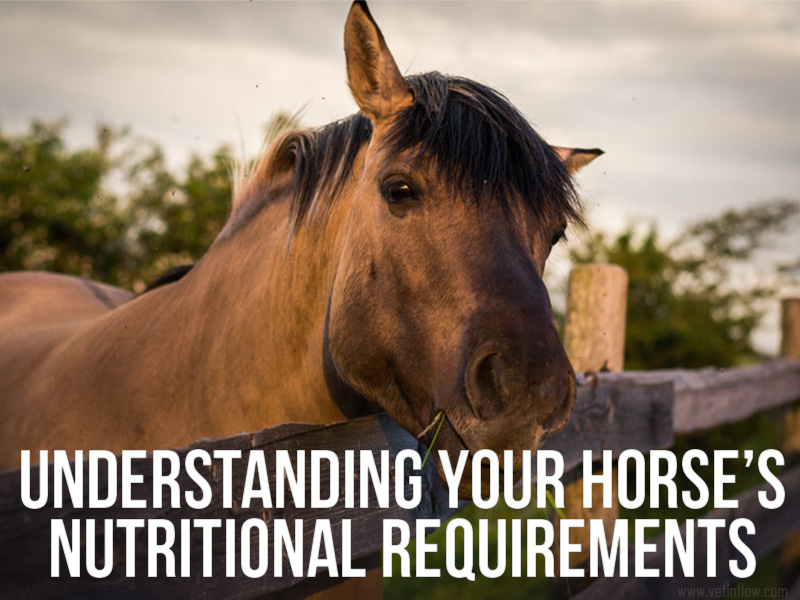
Understanding your horses nutritional requirements

The best way for owners to understand their horse's dietary needs is for them to know how the equine digestive system works.
In the wild, horses will spend most of their time grazing freely across the countryside and keeping themselves safe from predators. They will eat small amounts of grass throughout the day, choosing immature forages that are easy to digest. This means that the equine digestive tract has evolved to process frequent, small amounts of food naturally rich in nutrients and fibre. Under these conditions, digestive problems are unlikely.
Nowadays, a domesticated horse's lifestyle has very little to do with its wild counterparts. Horses are confined to pastures or paddocks which limits their movement and their feed choices. Horses will eat what is available or what is provided by their caretakers, who usually don't have the time to offer several small amounts of food every day. As a result, horses are often fed a large quantity of food, sometimes in a single daily meal. Horses' nutritional requirements have also changed due to the increase in their workload.
As you can imagine, all these changes to a horse's natural feeding habits can have serious consequences on its digestive system.
The equine digestive tract is not prepared to be empty for any length of time, as this can cause damage in their stomach lining and lead to gastric ulcers. If it is not possible for a horse to have free access to grass or hay (forage) or to be offered frequent, small meals throughout the day, then it should be fed at regular intervals in order to reduce the amount of time its digestive tract is empty.
Horses are able to get nutritional content from grasses and hay because their digestive system contains microorganisms (in the cecum and colon) that are capable of breaking down structural carbohydrates. These will then be turned into molecules that can be absorbed by the horse and transformed into energy. This particular characteristic of the horse's digestive system is also the reason why there shouldn't be any sudden changes in their diet. If any change is needed, the diet should be gradually altered over a 7 to 10 day period, so the resident bacterial population in their hindgut has time to adapt to the change.
A horse's nutritional requirements will depend on age, size, physiologic state and amount of work performed. In general, a mature, healthy horse will only require good quality hay, mineral supplementation, free-choice salt and water at all times. Exercising, working or growing horses as well as lactating mares will have higher demands for energy so their feed intake should be adjusted according to their needs.
It is also very important to keep an eye on your horse's body condition and weight so you can adjust its feed intake and amount of exercise accordingly. Please remember that obese horses are more prone to suffer from conditions such as laminitis, exercise intolerance, inefficient thermoregulation (over-heating) and metabolic disorders.
We have a new course about equine nutrition and feeding! Have a look at the course's description here!
Would you like to know more about horses? Check our Equine Courses:
Equine courses
Read the previous article: Bonfire night is almost here! Is your pet afraid of fireworks?

